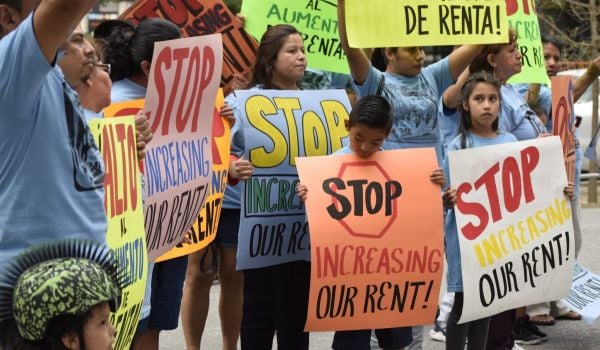Election season ended a week ago, but seeing as more than 100,000 signatures across the country have called for certain states to secede as a result, partisanship on the national political stage isn’t going anywhere. Ominous talk of the fiscal cliff dominates the daily news cycle. Meanwhile, about 8 percent of Americans remain unemployed and about 15 percent live in poverty.
How to break the gridlock and get the country moving toward recovery? The Brookings Institution has a few ideas, and the two key words are “metropolitan areas.”
The D.C. think tank’s Metropolitan Policy Program yesterday released six of 18 eventual policy recommendations in a series outlining steps the federal government can take to spur activity in metro economies — activity that will, the thinking goes, deliver us from the fiscal cliff and lay the foundations for a broader, bottom-up national recovery.
A tall order, yes. But the role of the feds, according to the series overview, will be mostly to strengthen relationships with states and municipalities while streamlining their own programs. In other words, the national government shouldn’t spread itself any thinner, but instead create an environment in which localities can step up and take charge. To borrow language from the report, this means doing less, but doing it better.
“We really need a housecleaning of monumental proportions,” said Bruce Katz, director of the Metropolitan Policy Program. (Full disclosure: Katz is on the Board of Directors for Next American City.)
In this case, housecleaning will involve making cuts to redundant or overlapping federal programs, and channeling what is saved from those cuts elsewhere. The end goal is not only to knock an estimated $200 billion off the deficit, but free up about half of that for new investments in more effective programs.
Each policy brief in the Brookings series will address the specifics, which vary in subject area and potential for drumming up controversy. Proposals in the first round, for instance, range from implementing a carbon tax to establishing a national unit to support the creation of public-private partnerships. Katz himself has a forthcoming report that will deal with reforming Section 8 housing.
“Washington needs to refocus itself on the core essentials,” said Mark Muro, the program’s policy director and author of the brief that argues for a carbon tax.
Take the idea put forth by researcher Paul Weinstein: In his policy brief, the former senior adviser to the Simpson-Bowles commission makes the case for creating a “cut-to-invest” commission. Since tackling programs one at a time wouldn’t be practical for, say, Congress to do, this bipartisan group would recommend cuts to wasteful, duplicative or low-priority programs, and then determine where the money could be better spent. (It brings to mind the Hoover Commission, which former president Truman tasked with recommending changes to the federal government following World War II.)
But how to agree on which programs bolster at the expense of others? The commission, said Weinstein, wouldn’t fall into a typical partisan trap since it would have an odd number (35) of commissioners, made up of both current and former elected officials. That way, not everyone would concern themselves with toeing party lines for the sake of reelection.
Beyond streamlining, consolidation and reorganization, Brookings calls for the feds to keep the focus on metros. That’s where the core strength is, and that’s where recovery will come from.
“Washington,” said Muro, “needs to keep thinking centrally… about what happens outside Washington.”
“The federal government rarely leads,” said Katz. “It mostly follows.”




_600_350_80_s_c1.jpg)











